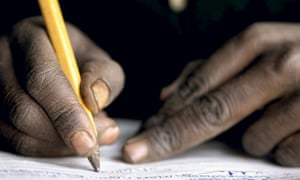BOY, 13, DIE IN BEATING OF A CLASS TEACHER
http://jaridahuru.blogspot.com/2018/09/boy-13-die-in-beating-of-class-teacher.html

Campaigners have urged the Tanzanian government to review corporal
punishment in schools after a 13-year-old boy died following a beating
by his teacher.
Sperius Eradius, from the northern Kagera province, died on 27
August, a few days after the punishment. Sperius had been accused of
stealing from another teacher.
The case is being investigated by Tanzania’s health ministry, while
local media reported on Monday that two teachers had been charged with
Sperius’s murder.
The case has provoked an outcry from campaigners, who said children are being subjected to degrading and violent punishments.
“We
cannot wait. [Children] have human rights. We cannot wait for them to
die to change things,” said Sonia Vohito, Africa project coordinator for
the Global Initiative to End All Corporal Punishment of children. “We need political willingness. The authorities have to take the lead.”
The Tanzania
Media Women’s Association (Tamwa) said it hoped the case would bring an
end to the use of such violence in schools, and cited other recent
incidents where children had been subjected to humiliating beatings. The
group described a case in 2016, in which a girl was reportedly forced
to remove her underwear before being caned by four teachers.
Tanzania is one of a small number of African countries where corporal
punishment is not banned in any setting. President John Magufuli has publicly stated his support for caning children.
Teachers are allowed to strike a pupil up to four times with a light,
flexible stick on either the hands or buttocks, while female pupils
should only receive punishment from a female teacher. All instances of
corporal punishment must be recorded.
But such guidance is often ignored by teachers, according to human
rights groups. “This has led to a number of incidents of human rights
violations occurring and causing students to lose access to education,
disability and loss of life,” Tanzania’s Legal and Human Rights Centre
(LHRC) said in a statement. It has warned of a wider, growing problem of
violence against children in schools.
“School is supposed to be a very safe place for students to enjoy their fundamental right to education,” the LHRC said.
Research by Human Rights Watch
found widespread violence and harassment in schools. Children reported
being caned or beaten for being late, despite having walked for hours to
get to school, or for not answering questions correctly. Female
students suffered additional humiliation, with girls at one school
reporting being hit on the breasts. Girls also face the threat of sexual
harassment and assault by teachers.
Vohito said Tanzania’s laws on caning are contrary to its international obligations. While Tanzania is among the “pathfinder” countries committed to ending violence against children, last year it rejected calls to ban corporal punishment.
“[The
country] cannot have a law that allows corporal punishment and at the
same time be part of an initiative that claims to end violence against
children,” said Vohito. She added that better training for teachers was
also needed, including guidance on using positive discipline to help
students.
Since you’re here…
…
we have a small favour to ask. More people are reading the Guardian
than ever but advertising revenues across the media are falling fast.
And unlike many news organisations, we haven’t put up a paywall – we
want to keep our journalism as open as we can. So you can see why we
need to ask for your help. The Guardian’s independent, investigative
journalism takes a lot of time, money and hard work to produce. But we
do it because we believe our perspective matters – because it might well
be your perspective, too.
The
Guardian is editorially independent, meaning we set our own agenda. Our
journalism is free from commercial bias and not influenced by
billionaire owners, politicians or shareholders. No one edits our
Editor. No one steers our opinion. This is important because it enables
us to give a voice to the voiceless, challenge the powerful and hold
them to account. It’s what makes us different to so many others in the
media, at a time when factual, honest reporting is critical.
If everyone who reads our reporting, who likes it, helps to support it, our future would be much more secure







